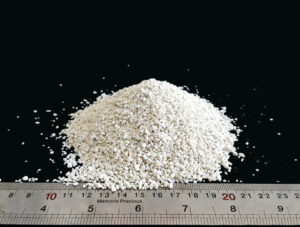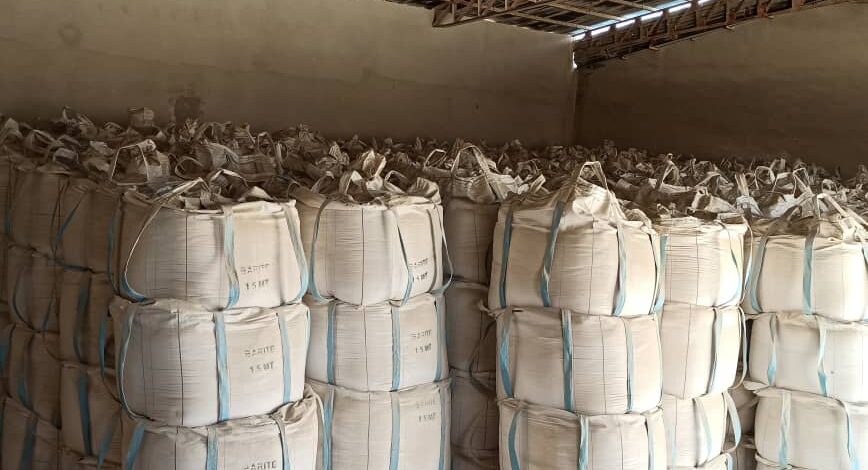A Comprehensive Guide
The Essentials of Exporting Bentonite
Bentonite, a versatile clay material, is used globally in industries such as construction, drilling, cosmetics, and agriculture. With its growing demand, particularly for applications in drilling fluids, cat litter, and water treatment, exporting Bentonite can be a profitable venture. However, understanding the export process and ensuring compliance with international regulations is critical for success.

In this guide, we will cover the essential steps on how to export Bentonite, including market research, regulations, packaging, transportation, and securing buyers.
Step 1: Research the Global Demand for Bentonite
Before exporting Bentonite, conducting market research is crucial to identify key regions and industries with high demand for the product. Bentonite is widely used in several sectors, such as:
- Oil and Gas: It is a major component in drilling fluids for oil and gas exploration.
- Construction: Bentonite is used in civil engineering for sealing and waterproofing.
- Cosmetics and Pharmaceuticals: It acts as an absorbent and stabilizer in beauty and healthcare products.
- Agriculture: Bentonite is used in soil conditioning and livestock feed.
Countries in Asia, the Middle East, and North America are the top importers of Bentonite. Identify potential buyers by researching which markets have growing demands for Bentonite’s diverse applications.
https://iranmineral.net/industrial-benefits-of-bentonite/
Step 2: Compliance with Export and Import Regulations
Export Licensing and Documentation
Exporting Bentonite requires compliance with both your country’s export regulations and the importing country’s trade laws. Key requirements include:
- Export license: Obtain an export license from the relevant authorities in your country to legally export Bentonite.
- Import regulations: Research the importing country’s regulations regarding Bentonite to ensure your shipment meets their standards for materials like industrial minerals.
Additionally, prepare essential documents such as certificates of origin, commercial invoices, and bills of lading to ensure smooth customs clearance.
Environmental and Safety Standards
Some countries may have specific safety and environmental regulations for mining and transporting Bentonite. It’s important to provide proof of compliance with environmentally responsible mining practices, especially if you’re exporting to regions with strict environmental laws. Adhering to these standards minimizes delays and ensures your product meets global requirements.
Step 3: Proper Packaging and Transportation of Bentonite
Best Practices for Packaging Bentonite
Proper packaging is essential to preserve Bentonite’s quality during transport. As a mineral product, it must be protected from moisture, contamination, and damage. Common packaging options include:
- Bulk Bags (Jumbo Bags): Used for large quantities, these woven polypropylene bags are ideal for shipping Bentonite in bulk.
- Paper or Plastic Bags: Smaller shipments can be packaged in paper or plastic bags, which are sealed to maintain the material’s integrity.
Label the packages with clear information, including the weight, product name, and destination, to avoid customs issues and ensure smooth handling.
Choosing the Right Transportation Method
The transportation method will largely depend on the quantity being exported and the destination. The two most common options are:
- Sea Freight: The most cost-effective method for bulk shipments. Use containers to protect Bentonite from moisture and damage during long transit times.
- Rail or Truck: For closer destinations, land transport via rail or trucks might be more convenient and faster, especially for cross-border exports.
Be sure to secure cargo insurance to protect your shipment from potential losses or damage in transit.
Step 4: Identifying Buyers and Negotiating Contracts
Finding reliable international buyers is key to a successful export business. Here are some effective ways to find potential buyers:
- Online Marketplaces: Platforms such as Alibaba, Global Sources, and Trade Key connect suppliers with international buyers looking for Bentonite.
- Industry Trade Shows: Attend industry-specific trade shows and exhibitions focused on construction, mining, and drilling sectors to meet potential buyers face-to-face.
- Networking: Leverage your professional network and establish long-term relationships with distributors and manufacturers in need of Bentonite.
When negotiating contracts, it’s important to clarify Incoterms (International Commercial Terms), payment methods, product quality standards, and delivery timelines to avoid disputes.
Step 5: Secure Payments and Insurance
Export transactions often involve high-value shipments, making it essential to secure payments through reliable methods. Common payment options include:
- Letters of Credit (LC): Guarantees payment by the buyer’s bank, offering security for both parties.
- Telegraphic Transfers (TT): Faster and widely accepted, TT payments are commonly used for initial deposits or smaller orders.
It is also advisable to secure cargo insurance for your Bentonite shipments to cover potential risks such as loss or damage during transit.

